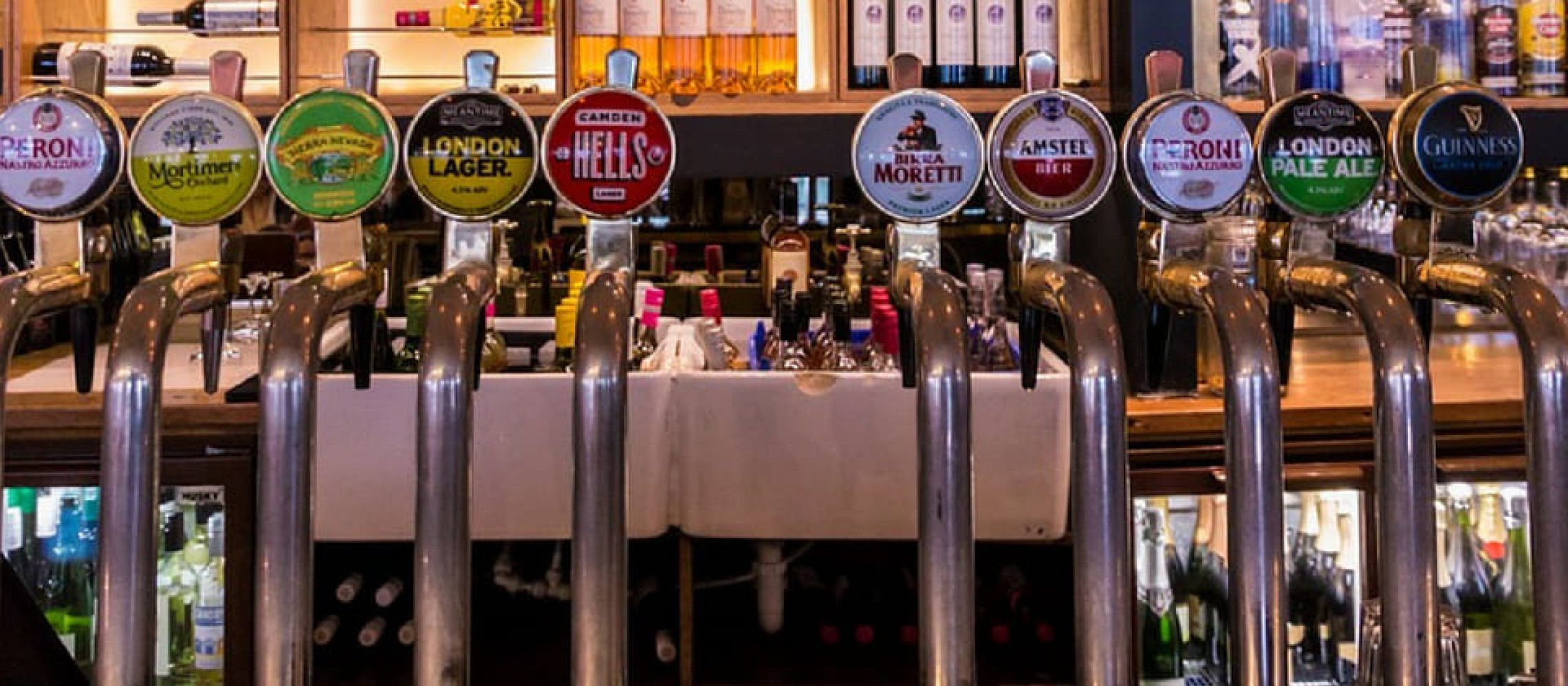Submission Deadline
28 February 2026
Judging
Date
23 March 2026
Winners Announcement
22 April 2026
28 February 2026
23 March 2026
22 April 2026

 It has become normal to find good beer in quality restaurants; the days when a 20-page wine list would feature a desultory bottle of Peroni are pretty much gone. Even the least beer-focused restaurant offers a couple of decent options now.
It has become normal to find good beer in quality restaurants; the days when a 20-page wine list would feature a desultory bottle of Peroni are pretty much gone. Even the least beer-focused restaurant offers a couple of decent options now.
Nonetheless, there’s plenty of competition to get onto top restaurants’ drinks lists. Few know more about this than Nick Trower, who runs Biercraft, set up in 2013 to supply beer to the London on-trade. The 39-year-old now works with many of the capital’s best restaurants. Here are his tips:
“For the restaurant customer, this is probably less important than it would be in a bar. In a restaurant you’re ordering off a menu rather than scanning a fridge behind a bar, so - unless you spot something on the next-door table that you fancy - the label or container is not going to sway you.
“It’s a different matter for restauranteurs. I’ve had a lot of trouble in the past selling cans: when Beavertown first swapped over, the business I was doing with them dropped off dramatically. It took about nine months for it to come back round, but I think they’ve paved the way for it to be acceptable. A place like Fera at Claridges was initially very anti-cans, but they came round: most places are serving with glasses so it shouldn’t matter. Gipsy Hill is struggling at the moment, but for me, it’s a bit like screw-cap wine, and that argument is dead and buried now.
“I’ve really tried to push the idea of sharing bottles, the 750ml, but a lot of places you would expect to want to do it are the hardest to convince. It’s easier now that sommeliers - who used to just look after the wine - do drinks as a whole. It’s still frustrating how few get sold.”
“Lager is definitely still the big seller, but I think that’s more an aperitif thing. Most places that have more than the most basic selection - a lager and a pale ale - tend to go for saisons or other Belgian styles, which can work really well with food. Saisons act as a bit of additional citrus. Partizan Lemon and Thyme Saison works well with calamari and lemon, for example. It can work better than a lot of wine.
“In terms of pairing you apply the same principles as you do wine. It should be complementary - so for really spicy food, the wine would have something with sweetness so you can still taste it. Something aggressively hopped doesn’t work with delicate food but it can really good with strong blue cheese. And I think people tend to prefer lower ABV beer. The stronger stuff is harder to sell.”
“A lot of restaurants prefer the classic to the new. A brewery that has been going for hundreds of years and making great beer, that’s quite akin to what some of the wine producers will be doing. I’ve had a lot of luck with Mahr’s: at the Quality Chophouse, they said: ‘We want a really good lager. Why not go to the source?’
“You don’t have to be super-old, though. The Kernel almost seem like traditional-modern now. They seem to do really well with the Brawn-type restaurants that are quite classic. The Kernel is seen as classic.”
“Breweries like The Kernel that don’t jump on every trend are the ones that the restaurant trade are going to keep coming back to. With the wine, if you list a wine, you know you’ve got it for the vintage. With beer, it’s hard to get a listing unless you’ve got permanent beer. It works fine with the Kernel because they’ve got variations on the pale ale. People are happy with that, they see it like vintage variation.
“Those breweries that are chopping and changing, that’s harder. People are skeptical of breweries that don’t stick to doing one thing well.”
“If you’re next door to a really good local brewery that does a great range of beers, that’s going to be your cheaper option as a restaurant, to buy directly. They can drop it around, you have loyalty to your local brewery. Its like on a menu where they say where everything comes from: the beef, the asparagus, that kind of hyper-local thing. People like that with beer because it is local. You can't have an all-British wine list, and get the full list of styles - with beer you can.”
Show your beers where it matters. Get your products tasted by top buyers and experts at the London Competitions — enter now.